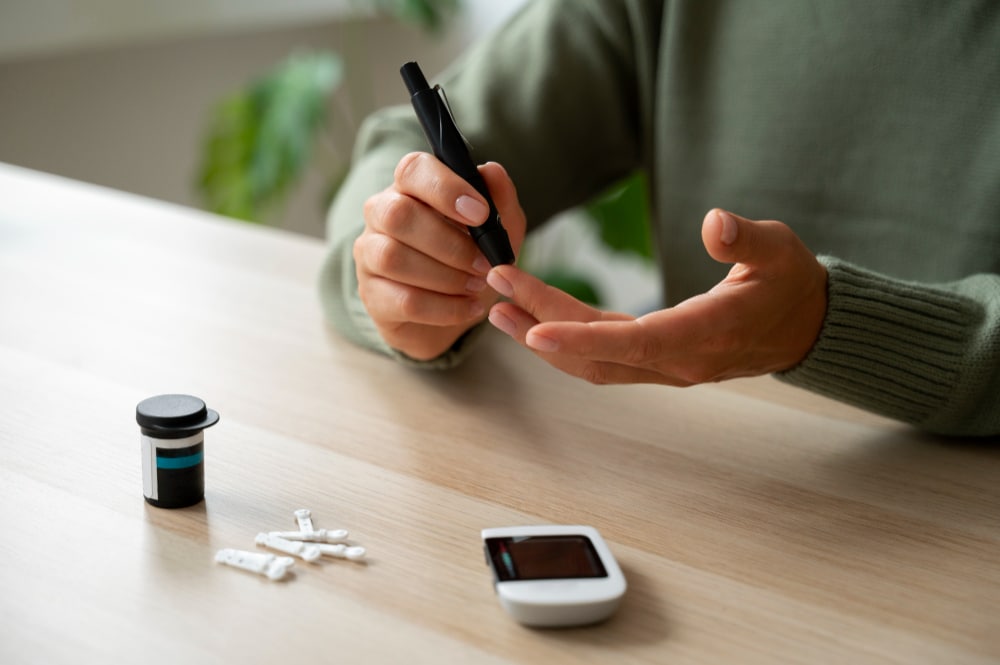Collagen, the most abundant protein in the human body, may exacerbate type 2 diabetes, a chronic condition affecting over 500 million people globally, a study from the Indian Institute of Technology (IIT) Bombay has revealed.
Published in the Journal of the American Chemical Society, the research highlights how collagen I, a key structural protein in skin, bones, and connective tissues, acts as a hidden trigger in worsening this disease. The findings also prompt questions about the safety of collagen supplements, widely used for skin, joint, and overall health benefits.
What is collagen, and why do people take supplements?
Collagen is a crucial protein that forms the structural framework of tissues like skin, bones, cartilage, and tendons, acting as a scaffold to support cells and maintain organ integrity. As people age, collagen production naturally declines, leading to wrinkles, joint stiffness, and weaker tissues.

This has driven the popularity of collagen supplements, available as powders, capsules, or drinks derived from animal sources like bovine or marine collagen. Marketed for improving skin elasticity, joint health, and muscle recovery, these supplements are often touted as low-calorie, carb-free options, making them appealing even for those managing diabetes.
What does the new study say?
The IIT Bombay study, conducted in collaboration with IIT Kanpur and the Chittaranjan National Cancer Institute, Kolkata, focuses on the interaction between collagen I and amylin, a hormone produced alongside insulin in the pancreas.
In type 2 diabetes, amylin can form harmful clumps that damage the cells that make insulin, making it harder to control blood sugar.
The study found that collagen I acts like a support structure that helps these harmful clumps form faster, makes them more toxic, and harder to clear away. This causes more damage to the insulin-making cells and makes diabetes worse.
Tests on diabetic mice and human samples showed that as diabetes progresses, levels of both collagen and amylin go up, which damages the pancreas even more.
“It almost seems that the amylin completely physically coats the collagen surface, forming stable aggregates that are more difficult for cells to clear. That was a very striking finding for us,” said Prof. Shamik Sen from the Department of Biosciences and Bioengineering at IIT Bombay, who led and oversaw the project.
“Rather than aggregating in isolation, amylin appears to use the collagen fibres like train tracks, accelerating its accumulation and increasing toxicity to nearby cells,” he added.
This study also explains why some diabetes treatments, which mainly target processes inside cells, may not fully stop the disease from progressing. According to Prof. Sen, “If we don’t break the link between amylin and collagen, we can’t completely get rid of the toxic conditions in the pancreas.”
The research team is now using cryo-electron microscopy (cryo-EM) to build detailed models showing how amylin and collagen interact. This could help design new drugs.
Do collagen supplements pose a risk?
The study specifically investigates collagen I naturally present in the body, not collagen supplements. It does not directly test whether supplemental collagen increases the risk of developing or worsening type 2 diabetes. However, the findings raise concerns about whether ingested collagen, which is broken down into short chains of amino acids and absorbed into the bloodstream, could contribute to similar amylin-collagen interactions in individuals with or at risk of diabetes.
While some studies suggest collagen supplements may benefit diabetics by stabilising blood sugar or improving insulin sensitivity, the IIT Bombay research highlights a potential downside that calls for further investigation.
Also read: Type 2 diabetes may lead to debt, bankruptcy, foreclosure: Study
















